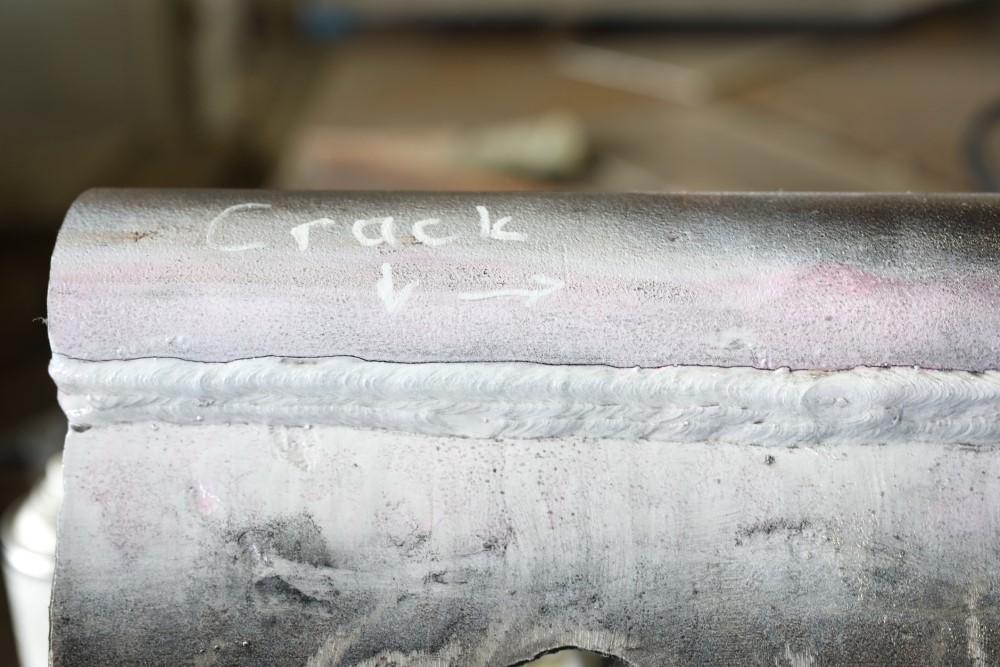A Comprehensive Overview to Identifying, Averting, and Dealing With Undercut Welding Troubles in Your Welding Tasks
In the realm of welding, experiencing undercut problems is an usual difficulty that can jeopardize the architectural integrity and general quality of your welding tasks. Stay tuned as we explore the important components of identifying, stopping, and dealing with undercut welding problems, supplying you with important understandings and techniques to boost your welding skills to the next degree.
Typical Sources Of Undercut Welding
Undercut welding, a common issue in welding processes, can be created by different elements that require to be meticulously recognized and addressed to ensure the integrity of the weld joint. One of the key reasons for undercut welding is excessive warmth input. When the welding parameters, such as voltage, present, or take a trip rate, are not correctly established, a too much quantity of warmth can be produced. This excess warm causes the melting and succeeding elimination of the base material along the edges of the weld joint, developing a groove known as undercut.
An additional usual cause of undercut welding is improper welding strategy. Determining these root causes and carrying out corrective measures is important in stopping and fixing undercut welding problems in welding tasks.
Identifying Undercut in Welds

To identify undercut accurately, appropriate lighting and magnification devices are vital to examine the weld joint extensively. Utilizing tools such as a welding gauge or a magnifying glass can aid in spotting even the tiniest undercut imperfections. In addition, running a finger or a finger nail along the weld joint can occasionally expose undercut, as the surface might really feel irregular or have a dip where the undercut exists.
Safety Nets for Undercut
Having a deep understanding of the sources of undercut in welds permits the implementation of effective safety nets to maintain weld quality and integrity. One critical safety net appertains weld joint prep work. Guaranteeing that the edges are tidy, devoid of contaminants, and effectively beveled can dramatically reduce the probability of undercut (Preventing weld undercut). Additionally, selecting the proper welding parameters, such as voltage, current, and take a trip rate, is crucial. These setups must be optimized to prevent too much warm input, which can result in damage formation.

Techniques for Fixing Undercut

Increasing the welding current or decreasing the travel speed can aid fill in the undercut. In addition, changing the welding strategy from a push to a drag or vice versa can additionally aid decrease undercut.
One more technique is to use a weaving motion while welding to ensure proper sidewall blend and fill in the undercut. By oscillating the welding arc from side to side within the weld joint, the welder can transfer more filler product into the undercut areas, properly eliminating the flaw.
In addition, grinding out the undercut and rewelding the joint can be a feasible service for more severe undercut concerns - Preventing weld undercut. This process includes eliminating the undercut area, preparing the base steel, and after that rewelding the joint with proper welding specifications and methods to stop undercut from reoccurring

Specialist Tips for Staying Clear Of Undercut
Utilizing proper welding strategies and maintaining control over essential welding criteria are important techniques for welders intending to prevent undercut in their weld joints. Furthermore, selecting the proper welding procedure and filler metal for the specific application can help protect against undercut. Maintaining a consistent travel speed throughout the welding procedure is an additional important pointer to prevent undercut.
Verdict
To conclude, recognizing, preventing, and dealing with undercut welding issues in your welding projects is important for ensuring durable and solid welds. Preventing weld undercut. By understanding the common sources of undercut, having the ability to determine it in welds, carrying out safety nets, and making use of proper methods for fixing undercut, you can prevent prospective problems and develop top notch welds. Adhering to professional tips for preventing undercut can assist you enhance your welding skills and produce better outcomes in your jobs
Undercut welding, a common concern in welding processes, can be triggered by different factors that require to be meticulously recognized and addressed to make certain the stability of the weld joint. In addition, running a finger see post or a fingernail along the weld joint can often expose undercut, as the surface area might really feel uneven or have a dip where the undercut exists.
Making use of correct welding strategies and maintaining control over essential welding specifications are essential methods for welders intending to protect against undercut in their weld joints.In final thought, identifying, stopping, and dealing with undercut welding troubles in your welding tasks is vital for making sure strong and sturdy welds. By comprehending the usual reasons of undercut, being able to identify it in welds, applying preventative measures, and utilizing proper techniques for dealing with undercut, you can prevent potential concerns and develop top notch welds.
Comments on “Exactly How to Avoid Weld Undercut: Essential Tips for Welders”